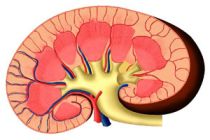How to recognize hyperthyroidism symptoms
Here we mention the most common hyperthyroidism symptoms.
What is hyperthyroidism?
The hyperthyroidism is a disease caused by a malfunction from the thyroid gland, given a hypersecretion of hormone levels in blood plasma.
The most common cause for hyperthyroidism is the secondary effect from other diseases such as diffuse toxic goiter and Graves – Basedow, among others.
También te puede interesar...
How to recognize pregnancy symptoms
The most important component from the hormones produced by thyroid (thyroxine (T4) and triiodothyronine (T3)) is iodine, which regulates the body's energy and during the first years of life, regulates growth. Thus, an imbalance in the production of this hormone can cause significant physical changes.
"Hyperthyroidism is a disease caused by the malfunction of the thyroid gland."
How to know if I'm suffering hyperthyroidism
Among the symptoms when you suffer hyperthyroidism are found:
- Gastrointestinal problems.
- Weight loss.
- Hyperphagia or inordinate appetite.
- Vomiting and nausea.
- Diarrhea.
- Intestinal cramping.
- Neuromuscular problems such as: fatigue, muscle weakness, tiredness and tremors.
- Cardiovascular problems such as: tachycardia, palpitations, effort dyspnea and hypertension.
Also, symptoms such as: increased pigmentation of the skin, heat intolerance, diaphoresis (excessive sweating), brittle and weak hair, decreased libido, and decrease or cessation of menstruation.
También te puede interesar...
Symptoms and causes of kidney stones
"A clear external physical symptom of hyperthyroidism is the withdrawal of the eyelids, which makes them appear the eyes, stands out, and bigger."
On psychological level, the person who suffers it can be irritability, anxiety, insomnia and decreased stress threshold bearable.
A clear external physical symptom of hyperthyroidism is the withdrawal of the eyelids, which makes them appear the eyes, stands out, and bigger.
All hyperthyroidism symptoms are variable, each individual may show differently, however, in the presence of either of them, is recommended to see a doctor to make appropriate tests.


